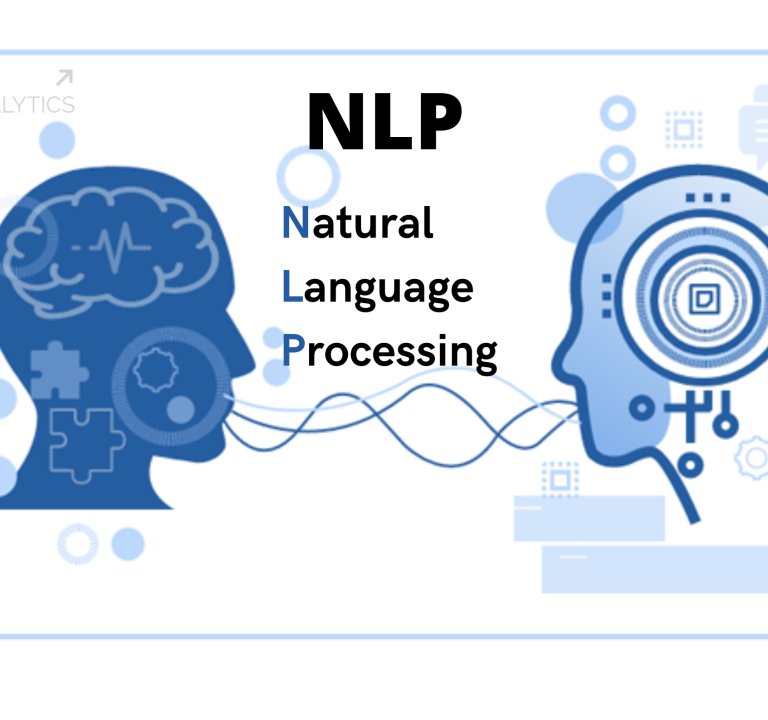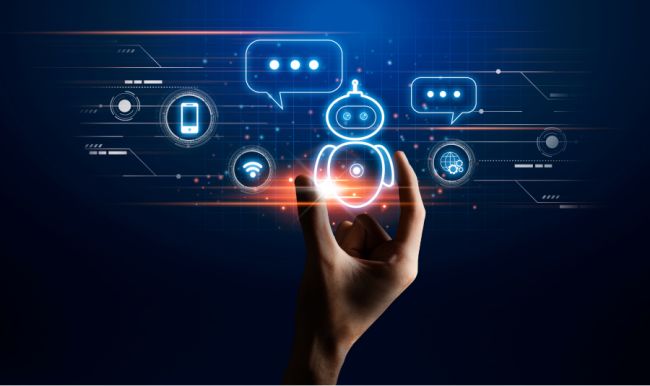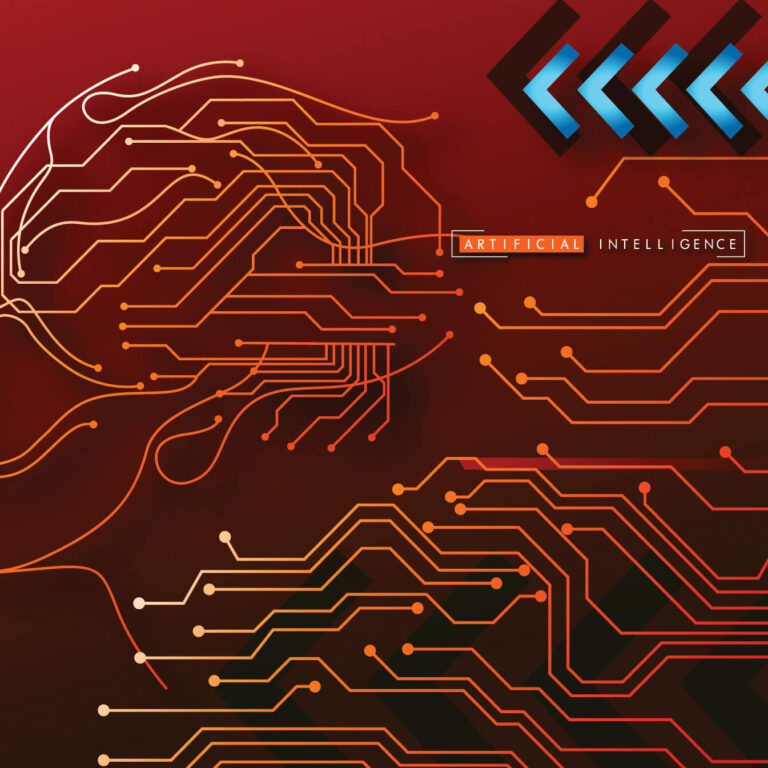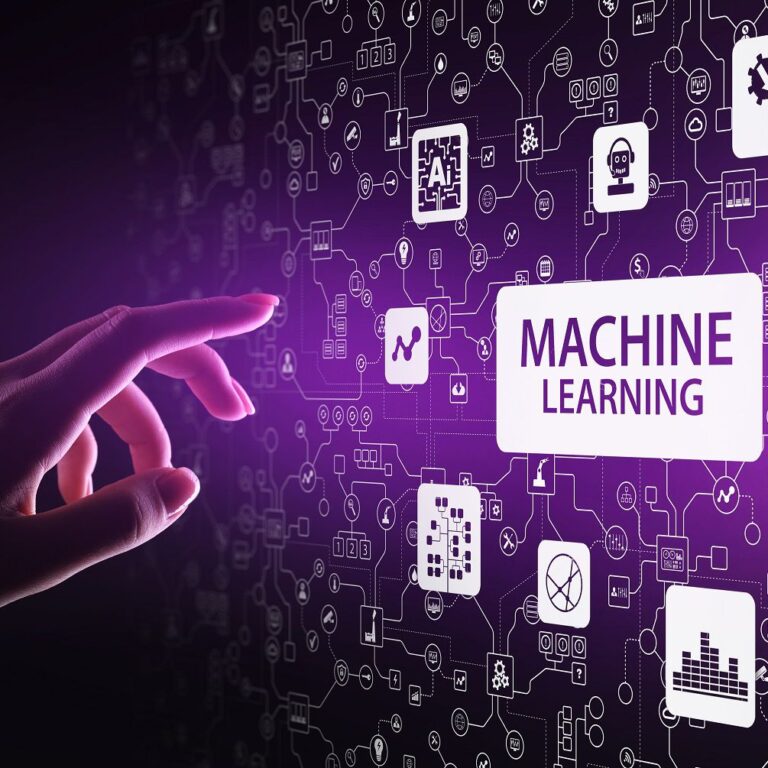What is an AI Agent? An AI agent is a computer program that can think and act like a human to perform tasks on its own. It understands its surroundings and makes decisions based on that information. AI agents are used in many areas, from virtual assistants like Siri to self-driving cars, helping automate tasks and make life easier. However, they also face challenges, such as needing large amounts of data to function well and sometimes making errors. In this blog, we’ll explore what AI agents are, how they work, their pros and cons, and where they’re being used today.

What are AI Agents?
An AI agent is a type of software that can interact with its surroundings, gather information, and use that data to complete tasks on its own. While humans set the goals, the AI agent decides the best steps to take to reach those goals without needing human help for every action. For example, in a customer service center, an AI agent can assist by answering customer questions. It will ask the right questions, search through internal files, and give a solution. If the AI can’t solve the issue, it knows when to pass it on to a human for further assistance.
Learn more about what is artificial intelligence (AI)
Benefits of AI Agents: Enhancing Business Efficiency and Customer Satisfaction
AI agents are revolutionizing how businesses operate by streamlining processes and enhancing customer interactions. By leveraging advanced technologies, AI agents deliver significant advantages that can help organizations thrive in a competitive landscape. Here’s a closer look at how AI agents can benefit your business:
1. Boosted Productivity
AI agents excel in automating repetitive and mundane tasks, allowing your team to concentrate on high-value activities. By handling routine functions like data entry, scheduling, and basic customer inquiries, AI agents help businesses achieve greater operational efficiency. This increased productivity not only improves workflow but also enables employees to dedicate more time to strategic initiatives, ultimately driving business growth.
2. Lower Costs
Implementing AI agents can significantly reduce operational costs. By minimizing human error and optimizing processes, these agents ensure consistent performance in complex tasks. As AI agents adapt to changing conditions, they enhance overall efficiency without the added cost of human intervention. This cost-effectiveness makes AI agents an attractive investment for businesses looking to maximize their return on investment (ROI).
3. Smarter Decisions
Harnessing the power of machine learning, AI agents can rapidly analyze vast amounts of data, providing valuable insights that inform decision-making. For instance, during marketing campaigns, AI can assess product demand patterns, enabling businesses to pivot strategies quickly. This data-driven approach allows organizations to make informed decisions that enhance competitiveness and market responsiveness.
4. Better Customer Service
AI agents significantly enhance customer experiences by offering personalized recommendations, rapid responses, and tailored solutions. By utilizing customer data and preferences, AI agents can provide relevant information and support, leading to increased customer loyalty and engagement. With 24/7 availability, AI agents ensure that customer inquiries are addressed promptly, fostering a positive brand image.
Key Characteristics of AI Agents
AI agents possess several advanced features that differentiate them from traditional software:
- Autonomy: AI agents operate independently, requiring minimal human oversight, which enhances efficiency.
- Perception: Equipped with sensors (e.g., cameras, microphones), they can interpret and understand their environment.
- Reactivity: AI agents respond to environmental changes, allowing them to adapt and achieve their objectives effectively.
- Reasoning: Through sophisticated algorithms, AI agents can process data and make informed decisions.
- Learning: AI agents continually learn from data inputs, improving their performance over time.
- Communication: They interact with humans or other agents using natural language processing (NLP), making conversations seamless.
- Goal-Oriented: AI agents are designed to accomplish specific objectives, either predefined or learned through experience.
Components of AI Agents
AI agents consist of several integral components that contribute to their functionality:
- Sensors: These collect data from the environment, such as cameras for visual input or software data inputs for analytics.
- Perception Module: Converts raw sensor data into actionable insights, facilitating understanding and response.
- Cognitive Architecture: Acts as the AI agent’s brain, where knowledge is stored and decisions are made.
- Knowledge Base: Contains critical information that aids the AI in decision-making processes.
- Reasoning Mechanisms: Enable the AI to determine the best actions based on available data.
- Learning Algorithms: Allow the AI to adapt and improve by learning from past experiences.
- Decision-Making: Utilizes data and knowledge to determine the optimal course of action.
- Actuator: Executes decisions, whether by moving a robot or dispatching messages in software applications.
Advantages of AI Agents
The implementation of AI agents offers numerous advantages for businesses:
- Increased Efficiency: By automating repetitive tasks, AI agents expedite processes and reduce errors, empowering employees to focus on strategic initiatives.
- Better Decision-Making: AI agents leverage data analysis to provide insights and predictions, enhancing organizational decision-making capabilities.
- Improved Customer Experience: Real-time interactions with customers enable AI agents to deliver personalized support and recommendations, resulting in greater customer satisfaction.
- Cost Savings: By handling routine tasks, AI agents diminish the need for human labor, leading to substantial financial savings for businesses.
Challenges of Using AI Agents: Key Considerations for Organizations
While AI agents offer significant benefits in automating business workflows and improving operational outcomes, organizations must navigate several challenges when deploying these technologies. Here are the critical concerns to address for effective implementation of autonomous AI agents:
1. Data Privacy Concerns
AI agents rely on vast amounts of data for training and operation, raising significant data privacy issues. Organizations must comply with data protection regulations (such as GDPR and CCPA) to safeguard sensitive information. This includes acquiring, storing, and transferring data securely. To enhance data security, organizations should implement robust data encryption methods, access controls, and regular audits to ensure compliance and protect customer privacy.
2. Ethical Challenges
AI agents powered by deep learning models can inadvertently produce biased, unfair, or inaccurate results. This is often due to biased training data or algorithms. To mitigate these ethical risks, organizations should establish safeguards such as human oversight and regular algorithmic audits. Implementing feedback loops that incorporate customer insights can help ensure that AI agents deliver fair, accurate, and relevant responses, enhancing overall user trust and satisfaction.
3. Technical Complexities
The deployment of advanced AI agents requires specialized expertise in machine learning and AI technologies. Organizations must invest in skilled professionals who can integrate machine learning libraries with existing software applications. Additionally, training AI agents with enterprise-specific data necessitates a deep understanding of data science principles and techniques. Without the right technical knowledge, organizations may face challenges in effectively deploying and maintaining AI agents.
4. Limited Compute Resources
Training and deploying deep learning AI agents demand substantial computational resources. Organizations that choose on-premise implementations may face significant upfront investments in hardware and software infrastructure. Furthermore, maintaining and scaling this infrastructure can be challenging and costly. To overcome these limitations, businesses might consider leveraging cloud-based solutions that offer flexibility and scalability while reducing the burden of hardware management.
Types of AI Agents
AI agents can be categorized based on their actions, intelligence, and capabilities. Understanding these types allows businesses and developers to select the appropriate agent for specific tasks and applications.

Here’s a closer look at the six main types of AI agents:
1. Simple Reflex Agents
- Simple reflex agents operate based on a set of predefined rules and respond to the current environment without considering past experiences or future implications. They rely heavily on condition-action rules, where specific conditions trigger certain actions.
- Applications:
These agents are best suited for environments with clear, stable rules. Common use cases include:
- Automated Customer Support: For instance, a chatbot that provides standardized responses based on keywords, such as giving instructions for password resets.
- Game AI: Non-player characters (NPCs) that follow specific behaviors based on player actions, such as attacking when approached.
2. Model-based Reflex Agents
- Unlike simple reflex agents, model-based reflex agents maintain an internal model of the world, allowing them to understand unobservable aspects of their environment. They update this model based on their perceptions and the actions they take.
- Example: Amazon Bedrock is a prominent example, using foundational models to simulate various operations, gain insights, and make informed decisions. It continuously refines its internal models based on real-world data to adapt and optimize its performance.
- Applications: Common applications include:
- Autonomous Vehicles: These vehicles use sensors to gather data about their environment and update their internal models to navigate safely.
- Smart Home Devices: Thermostats that learn user preferences over time to optimize heating and cooling.
3. Goal-based Agents
- Description: Goal-based agents are designed to achieve specific objectives by utilizing information from their environment. They use search algorithms to determine the most efficient path to their goals, adapting their actions based on the desired outcomes.
- Example: Google Bard functions as a goal-based agent by aiming to provide high-quality responses to user queries. It analyzes context and seeks to fulfill the user’s informational needs effectively.
- Applications: These agents are useful in various domains, including:
- Robotics: Robots that plan routes to accomplish tasks, such as delivery drones that find the quickest path to a destination.
- Natural Language Processing: AI that assists users by generating relevant and context-aware responses based on their requests.
4. Utility-based Agents
- Description: Utility-based agents make decisions based on maximizing a utility function, which quantifies the desirability of different outcomes. They evaluate multiple options and select actions that yield the highest expected utility.
- Example: Anthropic Claude is a utility-based agent that helps cardholders maximize their rewards. It employs a utility function to assess different actions (e.g., purchases, bill payments) and guides users to the most beneficial choices.
- Applications: These agents are particularly effective in scenarios with competing alternatives, such as:
- Resource Allocation: AI systems that optimize the distribution of resources in supply chain management.
- Game Theory: Agents in strategic games that analyze opponent behavior to maximize their own chances of winning.
5. Learning Agents
- Description: Learning agents improve their performance over time by learning from past experiences. They adapt their behavior based on feedback from their environment, often utilizing machine learning techniques to refine their actions and strategies.
- Example: AutoGPT is a learning agent that conducts market research. When tasked with analyzing smartphone options, it explores various sources, evaluates data, and generates a comprehensive report based on its findings.
- Applications: Learning agents are utilized in various fields, including:
- Personal Assistants: AI that learns user preferences to provide personalized recommendations, such as music or movie suggestions.
- Fraud Detection: Systems that analyze transaction patterns and adapt over time to identify potentially fraudulent activities.
6. Hierarchical Agents
- Description: Hierarchical agents are organized in a structured hierarchy, with higher-level agents overseeing lower-level agents. This organization enables them to coordinate complex tasks and manage multiple sub-tasks efficiently.
- Example: UniPi, developed by Google, exemplifies a hierarchical agent. It uses both text and video as interfaces to learn diverse tasks and manage operations through a high-level policy that generates instructions and a low-level policy that executes them.
- Applications: These agents are beneficial in complex systems, such as:
- Robotics: Multi-robot systems where high-level agents plan tasks and lower-level agents execute them, improving efficiency and effectiveness.
- Manufacturing: AI that manages production lines by delegating tasks to different machines based on overall production goals.
Real-life Examples of AI Agents
The practical applications of AI agents can be seen across various industries. Here are some real-life examples that illustrate their diverse functionalities:
- Gemini: Google’s next-generation large language model (LLM) that learns through reinforcement learning. It adapts its problem-solving capabilities based on feedback from its environment, enabling continuous improvement.
- AI Sandbox: Developed by Meta, this platform allows advertisers to explore generative AI tools for creating diverse ad content effortlessly. It includes features for text variations and image generation, enhancing creative processes.
- Speak AI: An automated transcription service that converts audio and video into text. It offers integrations with popular platforms like Zoom and Vimeo, simplifying workflow automation for content creators.
- Camel AGI: This agent framework uses role-based playing to guide chat agents toward task completion while aligning with human intentions. It enhances dialogue systems and can create interactive characters for games or simulations.
- Zendesk AI: An AI solution featuring intelligent bots and agent assistance to enhance customer experience. It streamlines customer service interactions by suggesting responses and detecting customer intent.
Applications of AI Agents: Transforming Industries
Autonomous agents are increasingly being integrated into various sectors, enhancing operational efficiency and improving service delivery.

Here are some prominent applications of AI agents across different industries:
1. Healthcare
In the healthcare sector, autonomous AI agents play a crucial role in diagnosing, treating, and monitoring patients. For instance, IBM Watson Health utilizes AI to analyze medical data, identify potential health issues, and recommend personalized treatment options. By leveraging vast amounts of patient data, these agents can assist healthcare professionals in making informed decisions, ultimately improving patient outcomes and enhancing the quality of care.
Artificial Intelligence (AI) in healthcare
2. Finance
AI agents are transforming the finance industry by analyzing financial data, detecting fraud, and providing investment recommendations. Charles Schwab employs an AI agent called Intelligent Portfolio, which creates and manages investment portfolios based on customers’ financial goals and risk tolerance. This application not only optimizes investment strategies but also enhances customer engagement by offering personalized financial advice.
3. Retail
In the retail space, AI agents enhance customer experiences through personalized recommendations, streamlined supply chain management, and efficient order processing. Amazon’s Alexa serves as a powerful AI agent that recommends products, places orders, and tracks shipments. By analyzing customer preferences and behaviors, they help retailers create tailored shopping experiences, driving customer satisfaction and loyalty.
4. Manufacturing
AI agents are revolutionizing manufacturing by optimizing production processes, predicting maintenance needs, and improving product quality. General Electric’s Predix is an AI agent that monitors industrial machines in real-time to predict equipment failures and schedule maintenance. This proactive approach reduces downtime, increases operational efficiency, and lowers maintenance costs, leading to a more robust manufacturing ecosystem.
5. Transportation
In the transportation sector, autonomous AI agents assist with route planning, traffic management, and enhancing vehicle safety. Tesla’s Autopilot is a well-known AI agent that enables vehicles to drive autonomously, assisting drivers with parking, lane changes, and safe driving practices. By utilizing real-time data and machine learning algorithms, they contribute to safer and more efficient transportation systems.
6. Education
AI agents are transforming education by providing personalized learning experiences, automating administrative tasks, and analyzing student performance. Pearson’s Aida is an AI agent that offers feedback to students and suggests customized learning paths based on individual progress. This application not only supports educators in identifying student needs but also fosters a more engaging and effective learning environment.
7. Agriculture
In agriculture, AI agents optimize crop production, monitor soil quality, and predict weather patterns to enhance farming practices. John Deere’s See & Spray is an AI agent that detects and targets weeds without harming crops, promoting sustainable farming. By utilizing data-driven insights, these agents help farmers increase yields, reduce resource waste, and improve overall agricultural efficiency.
How Endevsol Can Help with Your AI Agent Requirements
At Endevsol, we specialize in delivering comprehensive AI solutions tailored to your unique agent needs. Our team is dedicated to helping you harness the power of AI agents to streamline operations, enhance customer engagement, and drive innovation. Here’s how we can assist you:
- Tailored AI Agent Development: We create custom AI agents aligned with your business objectives, whether for customer support, data analysis, or operational efficiency.
- Advanced Natural Language Processing: Leveraging cutting-edge NLP technologies, we enable your AI agents to understand and process human language, ensuring more natural interactions with customers. Our capabilities include sentiment analysis, text generation, and content summarization.
- Seamless Integration: Our agents can be effortlessly integrated into your existing systems and platforms, allowing for a smooth transition and enhanced functionality without disrupting your operations.
- Multilingual and Multi-Platform Support: Reach a broader audience with AI agents that support multiple languages and platforms, ensuring effective communication and user engagement across diverse demographics.
- Data Security and Compliance: We prioritize your data security and compliance needs by implementing robust measures in our AI solutions, ensuring sensitive information is handled with care.
- Continuous Improvement and Support: Our team provides ongoing support and optimization for your AI agents, ensuring they evolve with your business and adapt to changing customer needs.
- Performance Analytics: We offer analytics tools that help you measure the performance of your AI agents, providing insights that inform future enhancements and strategies.
With Endevsol’s expertise in AI development and integration, you can confidently build and scale AI agents that drive innovation and elevate customer experiences. Don’t get left behind in the race to the future—connect with us today to discover how we can help you unlock the full potential of AI technology for your business.






